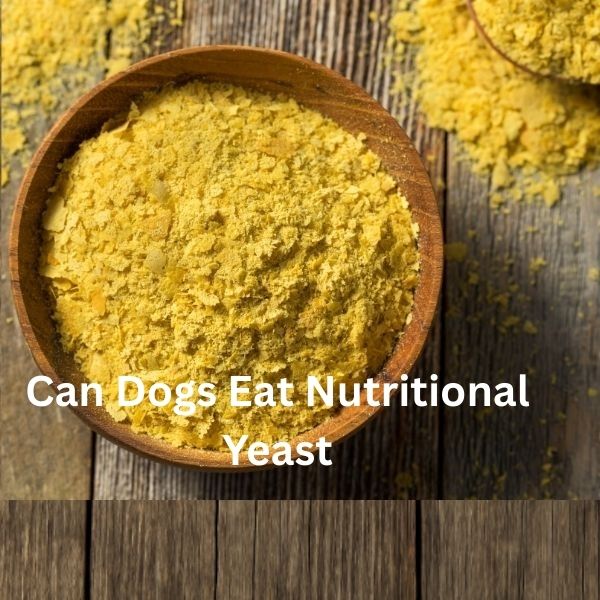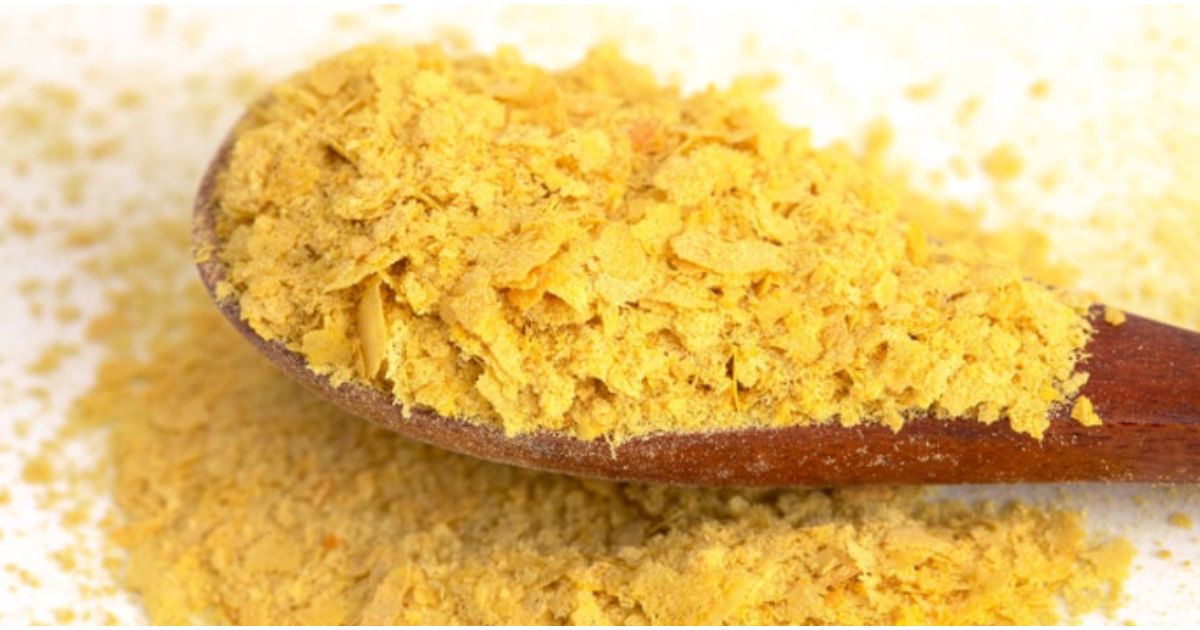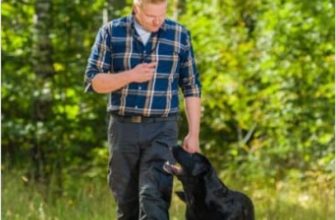
As pet parents, we’re constantly looking for ways to improve the health and happiness of our dogs. Nutritional yeast could proudly stake its place in dog food, with the fatigue of some dog owners with branded chow as well as the occasional food recall and pet food companies facing an increase in skepticism about their products. But is it safe for dogs? What are the benefits, and are there any risks? Here’s what you need to know about feeding your dog nutritional yeast — from the latest research to expert advice to practical tips. This blog help you learn about Can Dogs Eat Nutritional Yeast.
What Is Nutritional Yeast?
NoochNutritional yeast, commonly referred to as “nooch,” is a deactivated yeast, typically Saccharomyces cerevisiae, that is cooked, dried, and crumbled. Unlike the baker’s or brewer’s yeast, the nutritional yeast is heated and pasteurized so it won’t ferment or cause dough to rise. It’s available as yellow flakes, powder or granules, and has a super-savory, umami-rich, cheese-like taste.
Nutritional yeast is naturally gluten-free, dairy-free and vegan, which has made it a crowd pleaser for people with dietary restrictions — and, more recently, their pets.
Is Nutritional Yeast OK for Dogs?
Yes, it is safe for dogs to eat nutritional yeast in moderation. Note that you should not mix up nutritional yeast and active yeast (such as baker’s yeast), which can be harmful to dogs if consumed, especially in the form of dough.
Yeast Nutritional yeast is a complete protein and is frequently enhanced with B vitamins, so it can be a healthy supplement to your dog’s diet. But, moderation and good introductions are key, and it’s also the rule that you should always consult your vet before introducing a new supplement into your dog’s meals.
Nutritional Yeast for Dogs and Its Health Benefits
1. Rich Source of Protein
Nutritional yeast is a complete protein, meaning it contains all nine essential amino acids. This encourages muscle growth tissue and development repair in dogs.
2. Packed with B Vitamins
The majority of nutritional yeast products contain B vitamins, including B1 (thiamine), B2 (riboflavin), B3 (niacin), B5 (pantothenic acid), B6 (pyridoxine), B9 (folic acid), and B12 (cobalamin). These are vital vitamins for metabolism, brain health, energy production and immune function.
3. Antioxidant Properties
Nutritional yeast has antioxidants like glutathione and selenomethionine. These substances contribute to the protection of your dog’s cells from oxidative stress, along with anti-inflammatory and immune-strengthening benefits.
4. Improved Palatability
One of the things I do keep on hand that has a little flavor, I mix some cheesy, umami flavored nutritional yeast into his food, and it really helps cut the taste for Mickey, and I also feel better offering him food the cool kids eat.
5. Digestive Support
Fiber and beta-glucans in nutritional yeast can support good digestion and a healthy microbiome.
6. The Best in Gluten Free and Allergy Friendly Products
Because it’s inherently gluten-free, dairy-free and vegan, nutritional yeast is appropriate for dogs with food allergies or sensitivities.
A Safe Way to Introduce Nutritional Yeast Into Your Dog’s Diet
1. Choose the Right Product:
Choose plain, unflavored nutritional yeast with no added salt, garlic, onion, or artificial flavoring — these can be toxic to dogs.
2. Start Small:
Start with a small amount — a heaping 1/4 teaspoon for small dogs and up to 1 teaspoon for large breeds. Just sprinkle it on your dog’s regular food and see their reaction.
3. Monitor for Reactions:
Monitor for allergic reactions or digestive disturbances like itching, vomiting or diarrhea. Discontinue use and consult your veterinarian if any adverse reactions occur.
4. Consult Your Veterinarian:
Always ask your vet before making any changes to your dog’s diet or before feeding your dog a new food or supplement — particularly if your dog is a puppy, a senior, or if they suffer from any ongoing health conditions.
5. As an Accessory, Not a Centerpiece:
Nutritional yeast is meant to supplement your dog’s diet, not replace a healthy dog food. It’s good as an occasional add-in or flavor enhancer.

Risk & Precautions
1. Allergic Reactions:
It’s not very common but it’s possible for a dog to be allergic or sensitive to yeast. Begin with small quantities and observe accordingly.
2. Digestive Upset:
Gas, diarrhea or bloating may occur if you consume too much nutritional yeast. The recommended serving size should be followed and introduced slowly.
3. Existing Medical Condition:
Dogs with weak immune systems and those with kidney disease or liver disease should only eat nutritional yeast with a vet’s consent.
4. Avoid Active Yeast:
Do not use baker’s or brewer’s yeast in place of nutritional yeast. Live yeast may undergo serious fermentation in a dog’s stomach.
Latest Insights (2025)
Newer veterinary advice and nutrition studies have confirmed a safe use of nutritional yeast as a supplement for dogs as long as it is introduced slowly and in moderation.
Taste: Many commercially prepared dog foods and treats are being made with nutritional yeast due to it’s taste and nutiriton. But experts caution that it should never take the place of a complete and balanced diet, and pet owners should always read ingredient lists for additives that could be dangerous to dogs.
Frequently Asked Questions
Is nutritional yeast safe for dogs to eat?
The majority of canines who are overall healthy will have no issues digesting nutritional yeast. Puppies, seniors and dogs with certain health conditions may require extra discretion. As always, ask your veterinarian before giving them new treats or supplements.
How much nutritional yeast can I feed my dog?
Try 1/4 teaspoon to start for smaller dogs and up to 1 teaspoon for larger breeds. (And only as an occasional supplement, not a daily staple, unless your vet recommends.)
Is there any danger to giving a dog nutritional yeast?
It poses little risk when used moderately, but overindulgence may cause some gastrointestinal discomfort. Dogs, in rare cases, are allergic or sensitive. >Check your dog, and talk with your vet if you have concerns.
Can I feed my dog only nutritional yeast?
No, it is a supplement but not a replacement to a balanced diet for dogs (complete dog food). It should be an add on to an already well balanced diet.
Where to buy nutritional yeast for dogs?
A salty, cheesy-tasting and granular powder, nutritional yeast may be purchased from most grocery stores, health food stores, or online. For safety, stick to plain, unflavored options with no additives — or search for products designed for pets.
Final Thoughts
With the right usage, nutritional yeast can be a great, safe supplement that will provide your dog with nutrients it might not be getting otherwise. It’s high in protein, B vitamins, antioxidants and has been a useful food to add to your dogs diet when needing a ‘nutritional boost’ or for picky eaters. But moderation is the key — and it’s important to select the right product and consult with your veterinarian before introducing it into your dog’s routine.
With the recent studies and specialist advice, nutritional yeast is considered one of the best supplements for your dog’s health in 2025. As with all things, monitor your dog’s reaction, start slow and enjoy the process of improving your pet’s health one sprinkle at a time.







